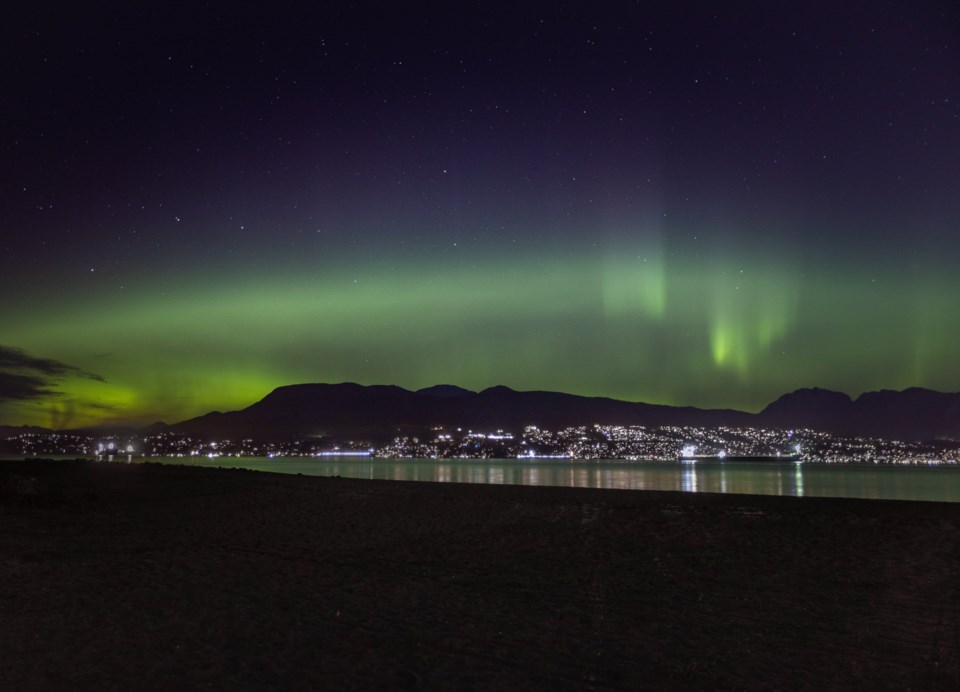With the news of another solar flare hitting the northern hemisphere, Vancouver is once again gripped with the aurora borealis craze.
So much so that many bleary-eyed photographers stayed up on Friday (Oct. 29) all clamouring for a glimpse of nature’s most impressive light show. Unfortunately, their enthusiasm appeared to be a tad premature as current solar weather forecasts are predicting the northern lights will be out in force on Saturday night.
Rob Lyons is a photographer and council member of the Royal Astronomical Society of Canada. Drawing on his experience from capturing the aurora earlier this month, Lyons offered some advice on social media.
When should I be looking?
“The current forecast is showing that the storm should peak for us here in the Lower Mainland between 8 p.m. and 2 a.m. with a couple of hours on either side,” Lyons said adding it is hard to predict anything beyond 30-40 minutes with accuracy.
However, there is this handy forecast that will provide constant updates you can check on.
Where should I be looking from?
“As for viewing the lights it is best to get away from light pollution, so get out of town if you can,” Lyons said. “The camera shows them more than what the naked eye sees, so if you're not a [photographer], you should go on a drive to somewhere dark with a clear view to the north.”
Normally Lyon’s would recommend heading to Spanish Banks, Porteau Cove or Pitt Lake but with last night bringing so many sky-gazers out of the woodwork he recommends going further off the beaten path.
Lyons also recommended making a night of it, packing some food, hot chocolate, and going nice and early before sunset.
But how do I get my internet points?
“If you would like to take a photo for the gram and collect your internet props you will want to use the best camera you own and put it on a tripod. A fast lens like a 50mm f/1.8 will help as it performs better in low light,” Lyons explains.
“Next you will need to do a long exposure, so either use a remote shutter release or activate the shutter delay setting on your camera, a 2-second delay will do the job. That will keep you from shaking the camera when you take your shot. The lights can be faint and slow or fast and blazing.”
“For slow auroras you can shoot 15-30 second exposures and get good results. If the lights are ‘dancing’ in the sky try a faster shot of 3-5 seconds or even faster. You can raise your ISO to help you get a better exposure.”



